第6章 IV(1)
The suppers of the Dante Club were a relaxation from the severity of their toils on criticism, and I will not pretend that their table-talk was of that seriousness which duller wits might have given themselves up to. The passing stranger, especially if a light or jovial person, was always welcome, and I never knew of the enforcement of the rule I heard of, that if you came in without question on the Club nights, you were a guest; but if you rang or knocked, you could not get in.
Any sort of diversion was hailed, and once Appleton proposed that Longfellow should show us his wine-cellar. He took up the candle burning on the table for the cigars, and led the way into the basement of the beautiful old Colonial mansion, doubly memorable as Washington's headquarters while he was in Cambridge, and as the home of Longfellow for so many years. The taper cast just the right gleams on the darkness, bringing into relief the massive piers of brick, and the solid walls of stone, which gave the cellar the effect of a casemate in some fortress, and leaving the corners and distances to a romantic gloom. This basement was a work of the days when men built more heavily if not more substantially than now, but I forget, if I ever knew, what date the wine-cellar was of. It was well stored with precious vintages, aptly cobwebbed and dusty; but I could not find that it had any more charm than the shelves of a library: it is the inside of bottles and of books that makes its appeal. The whole place witnessed a bygone state and luxury, which otherwise lingered in a dim legend or two. Longfellow once spoke of certain old love-letters which dropped down on the basement stairs from some place overhead; and there was the fable or the fact of a subterranean passage under the street from Craigie House to the old Batchelder House, which I relate to these letters with no authority I can allege. But in Craigie House dwelt the proud fair lady who was buried in the Cambridge church-yard with a slave at her head and a slave at her feet.
"Dust is in her beautiful eyes," and whether it was they that smiled or wept in their time over those love-letters, I will leave the reader to say. The fortunes of her Tory family fell with those of their party, and the last Vassal ended his days a prisoner from his creditors in his own house, with a weekly enlargement on Sundays, when the law could not reach him. It is known how the place took Longfellow's fancy when he first came to be professor in Harvard, and how he was a lodger of the last Mistress Craigie there, long before he became its owner. The house is square, with Longfellow's study where he read and wrote on the right of the door, and a statelier library behind it; on the left is the drawing-room, with the dining-room in its rear; from its square hall climbs a beautiful stairway with twisted banisters, and a tall clock in their angle.
The study where the Dante Club met, and where I mostly saw Longfellow, was a plain, pleasant room, with broad panelling in white painted pine;in the centre before the fireplace stood his round table, laden with books, papers, and proofs; in the farthest corner by the window was a high desk which he sometimes stood at to write. In this room Washington held his councils and transacted his business with all comers; in the chamber overhead he slept. I do not think Longfellow associated the place much with him, and I never heard him speak of Washington in relation to it except once, when he told me with peculiar relish what he called the true version of a pious story concerning the aide-de-camp who blundered in upon him while he knelt in prayer. The father of his country rose and rebuked the young man severely, and then resumed his devotions. "He rebuked him," said Longfellow, lifting his brows and making rings round the pupils of his eyes, "by throwing his scabbard at his head."
All the front windows of Craigie House look, out over the open fields across the Charles, which is now the Longfellow Memorial Garden. The poet used to be amused with the popular superstition that he was holding this vacant ground with a view to a rise in the price of lots, while all he wanted was to keep a feature of his beloved landscape unchanged.
Lofty elms drooped at the corners of the house; on the lawn billowed clumps of the lilac, which formed a thick hedge along the fence. There was a terrace part way down this lawn, and when a white-painted balustrade was set some fifteen years ago upon its brink, it seemed always to have been there. Long verandas stretched on either side of the mansion; and behind was an old-fashioned garden with beds primly edged with box after a design of the poet's own. Longfellow had a ghost story of this quaint plaisance, which he used to tell with an artful reserve of the catastrophe. He was coming home one winter night, and as he crossed the garden he was startled by a white figure swaying before him. But he knew that the only way was to advance upon it. He pushed boldly forward, and was suddenly caught under the throat-by the clothes-line with a long night-gown on it.
Perhaps it was at the end of a long night of the Dante Club that I heard him tell this story. The evenings were sometimes mornings before the reluctant break-up came, but they were never half long enough for me.